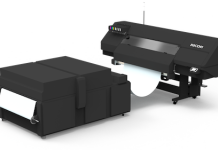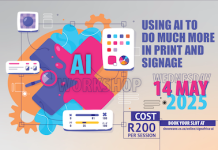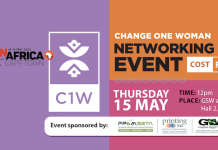Peter Bragg, EMEA Sustainability and Government Affairs Director, Canon, outlines how working towards the United Nations Sustainable Development Goals (SDGs) can provide direction for businesses.
Set up by the United Nations General Assembly with an ambitious target of changing the narrative across the world of sustainability by 2030, the SDGs target a range of topics from poverty and inequality to sustainable cities and climate action – underpinned by 169 targets and with a central commitment to Leave No One Behind. This clearly recognises the important role of collaboration in making progress towards sustainable development. The 17 SDGs were launched in 2015 to provide a foundation for individuals, companies and governments working towards sustainable change.
Progress to be made
In addition to an SDG review every four years by an independent group of scientists, the UN Secretary General presents an annual SDG Progress report developed in cooperation with the UN System. This progress report is based on the global indicator framework and data produced at both a national and regional level. Unfortunately, the 2019 Global Sustainable Development Report was a stark reminder of how far we are from achieving sustainability goals.
The timeline to achieve the SDGs was set at 2030, and according to the UN press, ‘At the current rate of investment, it will be impossible to achieve the SDGs by 2030. This is bad for people, bad for society, bad for the environment and bad for business.’ We all know that more needs to be done, and by including the SDGs and sustainability in general in our businesses, our education system, and our day-to-day life, we can all work towards achieving this milestone together.
With growing momentum towards sustainability and an influx of regulations and rules, the goals can be useful to gain understanding and map commitment to specific areas of sustainable development. But how should organisations approach the UN agenda, and how can the goals be adopted?
Including SDGs in your sustainable business strategy
It’s important for businesses to understand the importance of sustainability to their brand to assess how they can become more sustainable both within their organisation and for the world. Some businesses will naturally hold more accountability or may want to contribute to one area of sustainability more than another. Companies looking to be compliant with the UN SDGs need to consider them as a tool for governing decisions, when making business plans and evaluating the areas of sustainability already addressed.
The UN SDGs help to provide a framework for coordinating action across a wide range of topics to help drive change. Businesses need to juggle different corporate and Environmental Social and Governance (ESG) priorities simultaneously to meet stakeholder demands and bring about positive change, while also adhering to stripped back budgets. Of course, this can present challenges.
This is where The SDG Compass can help. Published by The UN Global Compact to assist companies in aligning the Goals with their strategies, it can help to transform how businesses operate by unifying efforts across environmental, social and economic topics in a common way. For example, while Canon already has its philosophy Kyosei, ‘living and working together for the common good’ at its heart, incorporating the SDGs into corporate strategy has brought about big benefits.
Coordination and accountability
Sustainability regulations and agreements vary throughout the world and are on the rise. Many large corporations carry out their business globally, and while they must adhere to local laws, it can then be a struggle to step back and find a clear way of coordinating approaches across different markets. Within large corporations there are often many different business units, as well as a dedicated sustainability resource. If the goals are included in sustainability and business strategies, they can unite different areas of the business and support a culture that recognises the importance of prioritising sustainability.
Jessica Lobo, Global Goals and Climate Programme Manager at UN Global Compact Network UK, provided an overview of the UN Global Compact’s approach to the goals, ‘The SDGs are a holistic, internationally agreed framework, which enables business to work across the organisation to create a sustainability strategy that aligns their objectives with the needs of our economy, society and environment. The global nature of the SDGs means that every business can share a common language and unified purpose to work with stakeholders and demonstrate their value in the world.
‘With 17 goals and 169 targets, we encourage businesses to take a strategic approach to the SDGs and focus their efforts by identifying the areas within the agenda where they have the greatest impacts. Companies can then use the ambition of the SDGs to set corporate sustainability targets that will scale up their positive impacts, reduce the negative areas, build resilience, and enable long-term growth, and accelerate progress that’s both good for business and good for the world.’
Strength in numbers
The SDGs provide a structure that encourages collaboration with partnerships to achieve direct action. Using the 17 Goals as a blueprint for development can help businesses to realise that you can’t always go it alone. In many cases, a business will look at the goals and choose those that are most relevant to their brand. This might mean a business focuses on areas for improvement when it comes to its production, or it may focus on collaboration if its core purpose is to share information or educate.
While Canon focuses on reducing its environmental impact as a major manufacturer, we acknowledge that we must act as a responsible business beyond this such as on societal issues. For example, through our partnership with the UN SDG Action Team, our Young People Programme (YPP) works with local NGOs including the Red Cross and Plan International to empower the next generation to make their voice heard on sustainability issues important to them.
When used as a common framework, driving real change on the SDGs is possible. Businesses, Governments and NGOs need to come together and ensure they’re continuing to use them as a guide for sustainable actions, both towards 2030 and beyond.
CANON SOUTH AFRICA
CZA-Marketing@canon.co.za
http://www.canon.co.za
















